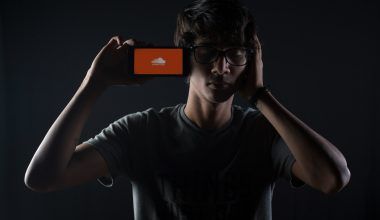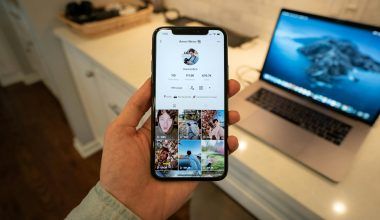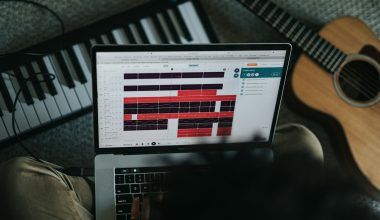If you’ve been exploring music, you might have come across the term “EP.” It’s a word you’ll see often when artists release new music, but what does EP mean in music? Don’t worry if you’re not sure. This guide will break it down for you in the simplest way possible.
By the end of this blog, you’ll not only understand what an EP is, but you’ll also learn why it’s such an important part of the music world. We’ll even explore how it differs from albums and singles. Let’s dive in!
Understanding the Basics: What Does EP Stand For?
First things first: EP stands for Extended Play. It’s a term used in the music industry to describe a collection of songs that is longer than a single but shorter than a full album. Think of it as the middle ground between the two.
For example, if an artist releases a single song, it’s just that—a single. But if they release four or five songs together, that’s usually called an EP. It’s “extended” because it offers more than one track but doesn’t stretch as long as an album, which often has 10 or more songs.
Why Do Artists Release EPs?
Artists release EPs for many reasons, and these reasons can vary based on their goals and creative vision. Here are a few common ones:
- Experimenting with New Sounds:
An EP allows artists to try out new styles or genres without committing to a full album. It’s a great way to test how their audience reacts. - Building Buzz:
For emerging artists, an EP is a fantastic way to introduce themselves to the world. It’s like giving listeners a sample of their work. - Staying Connected with Fans:
For established musicians, releasing an EP between albums keeps fans engaged. It’s a way to stay relevant in a fast-moving industry. - Cost and Time Efficiency:
Producing an EP is less expensive and takes less time compared to a full album. This makes it an attractive option, especially for independent artists.
How Many Songs Are in an EP?
Typically, an EP has three to six songs. However, there isn’t a strict rule about the number of tracks. What matters is the total length. An EP usually runs for about 15 to 30 minutes.
This shorter format makes EPs a quick and enjoyable listening experience. If you’re someone who gets overwhelmed by long albums, EPs might be your new favorite thing!
EP vs. Album: What’s the Difference?
It’s easy to confuse an EP with an album, especially if you’re new to the music scene. But the two are quite different.
An album is a full-length project with a larger number of songs—often 10 or more. Albums usually tell a cohesive story or explore a particular theme in depth. They’re longer, more detailed, and often considered the pinnacle of an artist’s work.
An EP, on the other hand, is shorter and more concise. It’s often more casual and less thematic than an album. For artists, it’s like a quick conversation with their audience, while an album is more like a deep, meaningful chat.
EP vs. Single: What Sets Them Apart?
Now that you know what an EP is, let’s compare it to a single. A single is just one song—sometimes accompanied by a “B-side” track, but not always. Singles are often released to promote an album or as a standalone piece.
An EP, by contrast, is a small collection of songs. It’s more substantial than a single but doesn’t carry the weight of an album.
Think of it this way: if a single is like a quick snack, and an album is a full-course meal, then an EP is like a hearty appetizer.
The Evolution of the EP: A Little History
EPs have been around for decades, and their role in the music industry has evolved over time. In the early days of vinyl records, EPs were shorter than LPs (long-playing records). Back then, they were used to release a few songs at a lower price.
As technology evolved, so did the purpose of EPs. Today, with the rise of streaming platforms like Spotify and Apple Music, EPs have become a key tool for artists to connect with their listeners.
Why Are EPs So Popular Today?
In today’s music world, EPs are more popular than ever. Here’s why:
- Streaming-Friendly:
People’s listening habits have changed. With shorter attention spans, EPs are the perfect fit for music fans who want quick, engaging content. - Flexibility for Artists:
EPs give artists the freedom to experiment and take creative risks without the pressure of a full album. - Perfect for Emerging Talent:
For new artists, an EP is a manageable way to showcase their skills. It’s less intimidating than creating a full album but still provides enough content to make an impression. - Frequent Releases:
Since EPs take less time to produce, artists can release them more often, keeping their name in the spotlight.
How to Spot an EP
If you’re browsing music and wondering whether something is an EP, here are a few clues:
- It has three to six tracks.
- The total runtime is under 30 minutes.
- It’s labeled as an EP by the artist or on the platform where you’re listening.
Of course, there are exceptions, but these guidelines are a good starting point.
Famous EPs That Shaped Music History
Some of the most iconic names in music started with an EP or used one to experiment with new sounds. For example:
- The Beatles released several EPs in their early days.
- Billie Eilish made waves with her debut EP Don’t Smile at Me.
- Nirvana released the EP Blew before their breakthrough album Nevermind.
These EPs played a crucial role in shaping the artists’ careers and introducing their music to the world.
Should You Listen to EPs?
Absolutely! If you love discovering new music, EPs are a fantastic way to explore an artist’s style without committing to a full album. They’re short, sweet, and often packed with creativity.
Plus, EPs are great for building playlists. Since they’re shorter, you can mix and match songs from different EPs to create your own unique vibe.
Final Thoughts: Why EPs Matter
Now that you know what an EP is in music, you can see why it’s such a valuable format. It’s more than just a collection of songs—it’s a way for artists to express themselves, connect with their audience, and try something new.
So next time you’re scrolling through your favorite music platform, give an EP a listen. You might just discover your new favorite artist or song!
Happy listening!
For further reading, explore these related articles:
- The Ultimate Guide to Picking the Perfect Music Band Names
- The Wonderful World of 4 Musical Instruments
For additional resources on music marketing and distribution, visit DMT Records Pvt. Ltd..






